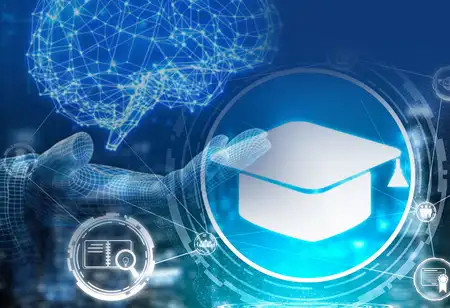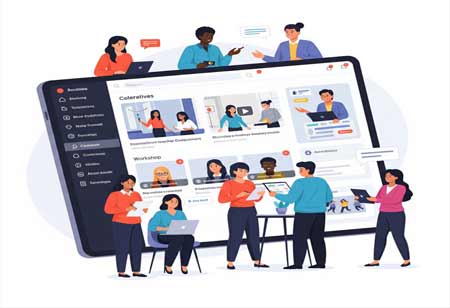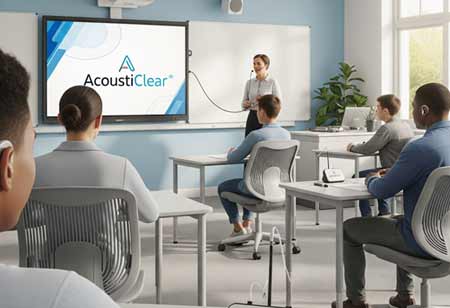THANK YOU FOR SUBSCRIBING
Be first to read the latest tech news, Industry Leader's Insights, and CIO interviews of medium and large enterprises exclusively from Education Technology Insights
Addressing Learning Disabilities in Online Tutoring
To ensure the inclusion of students with diverse needs in effective online education.

By
Education Technology Insights | Monday, August 07, 2023
Stay ahead of the industry with exclusive feature stories on the top companies, expert insights and the latest news delivered straight to your inbox. Subscribe today.
While online platforms offer convenience and accessibility, they also pose unique challenges when it comes to addressing learning disabilities. Students with learning disabilities require tailored approaches and support to thrive academically.
FREMONT, CA: To ensure the inclusion of students with diverse needs in effective online education, it is essential to address learning difficulties through online tutoring. Among these students, those with learning disabilities often face challenges that hinder their comprehension, processing, and retention of information. Therefore, educators and platforms must adopt strategies and technologies that specifically cater to these unique learning requirements, especially considering the growing popularity of online tutoring. By leveraging innovative methodologies, personalized approaches, and assistive technologies, online tutoring can create an inclusive and supportive learning environment. This environment empowers students with learning difficulties to thrive academically and unlock their full potential.
Understanding Learning Disabilities
To effectively address learning disabilities in online tutoring, it is crucial to have a comprehensive understanding of different learning disabilities, such as dyslexia, dysgraphia, dyscalculia, attention-deficit/hyperactivity disorder (ADHD), and auditory processing disorder. Familiarize yourself with the characteristics, challenges, and strengths associated with each disability to better support students.
Individualised Learning Plans
Developing individualized learning plans (ILPs) is essential for students with learning disabilities. Collaborate with parents, educators, and other relevant professionals to create comprehensive plans that cater to the specific needs of each student. ILPs should include goals, accommodations, and strategies to support the student's learning journey.
Assistive Technology
Utilise assistive technology tools and resources to enhance the learning experience for students with learning disabilities. Screen readers, speech-to-text software, graphic organizers, and interactive learning platforms can assist students in overcoming challenges and accessing educational materials effectively. Familiarize yourself with these tools and help students integrate them into their learning routine.
Multisensory Instruction
Incorporate multisensory instructional approaches in online tutoring sessions. These techniques engage multiple senses simultaneously, facilitating better information processing and retention. For instance, use visual aids, hands-on activities, and interactive exercises to reinforce learning concepts. This approach can benefit students with various learning disabilities, especially dyslexia and ADHD.
Structured and Predictable Sessions
Maintain structured and predictable tutoring sessions to provide a supportive learning environment. Clear expectations, consistent routines, and well-organized materials can help students with learning disabilities stay focused and feel more comfortable during online sessions. Break down tasks into smaller, manageable steps and provide regular feedback to ensure comprehension and progress.
Differentiated Instruction
Implement differentiated instruction techniques to accommodate diverse learning styles and abilities. Tailor the teaching methods, materials, and pacing to match the unique needs of each student. Provide additional explanations, examples, or alternative approaches when necessary. Flexibility and adaptability are key when addressing learning disabilities online.
Effective Communication
Establish clear lines of communication with students, parents, and any other stakeholders involved. Regularly discuss progress, challenges, and strategies to ensure everyone is on the same page. Maintain an open and empathetic approach, fostering trust and understanding among all parties involved.
Building Self-Advocacy Skills
Encourage and support students with learning disabilities in developing self-advocacy skills. Help them recognize their strengths, understand their learning needs, and express their challenges. Foster a growth mindset and empower students to seek assistance when necessary. By building self-advocacy skills, students become active participants in their educational journey.
Professional Development and Collaboration
Engage in continuous professional development to enhance your understanding of learning disabilities and effective tutoring strategies. Stay updated on current research, attend relevant webinars or workshops, and collaborate with other professionals in the field. Building a network of support and knowledge-sharing can significantly benefit students with learning disabilities.
Addressing learning disabilities in online tutoring requires a multifaceted approach that combines understanding, individualisation, and effective teaching strategies. By employing these strategies, tutors can create inclusive learning environments that support the diverse needs of students with learning disabilities. With ongoing collaboration and a commitment to professional growth, tutors can make a significant positive impact on the educational journeys of these students.







